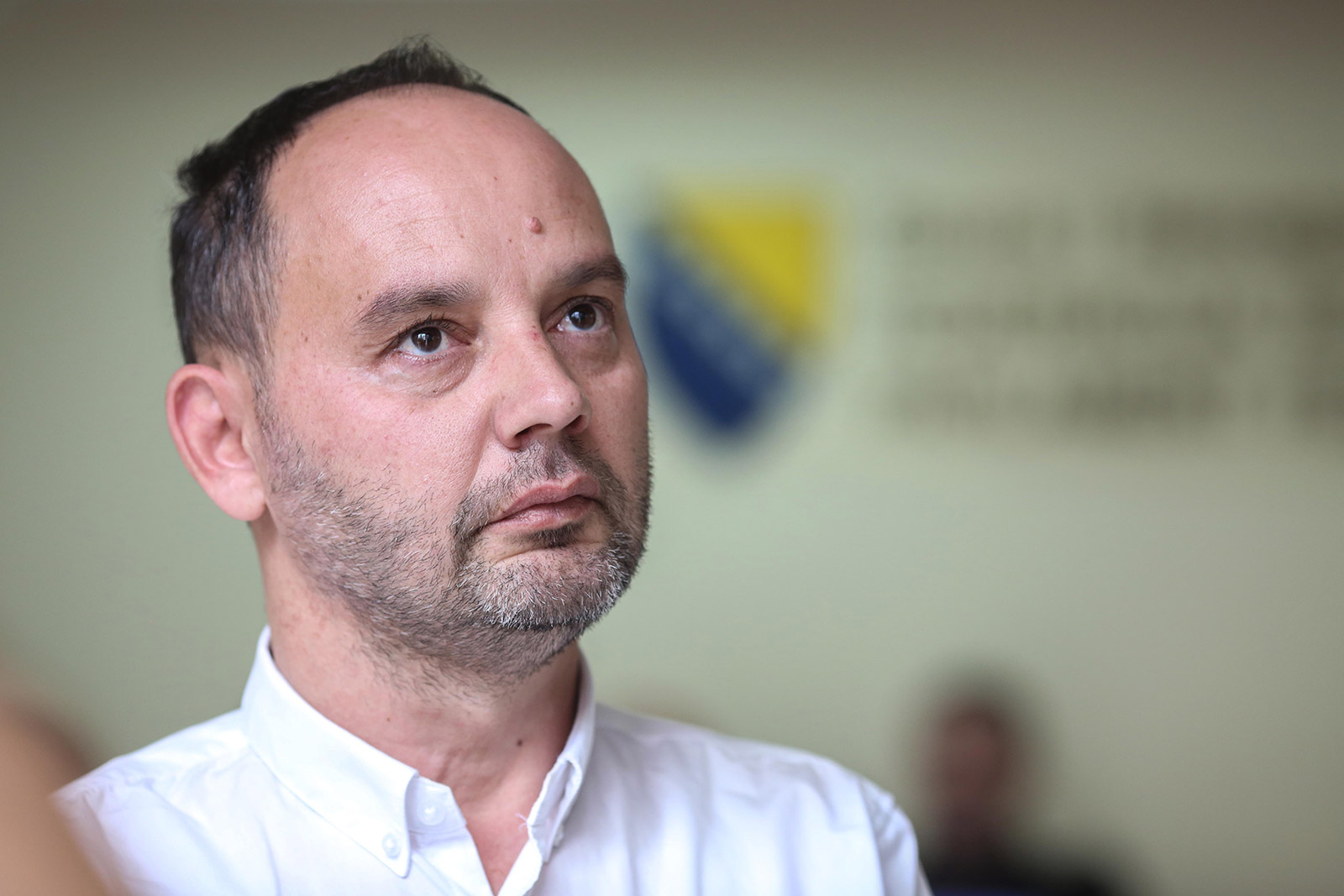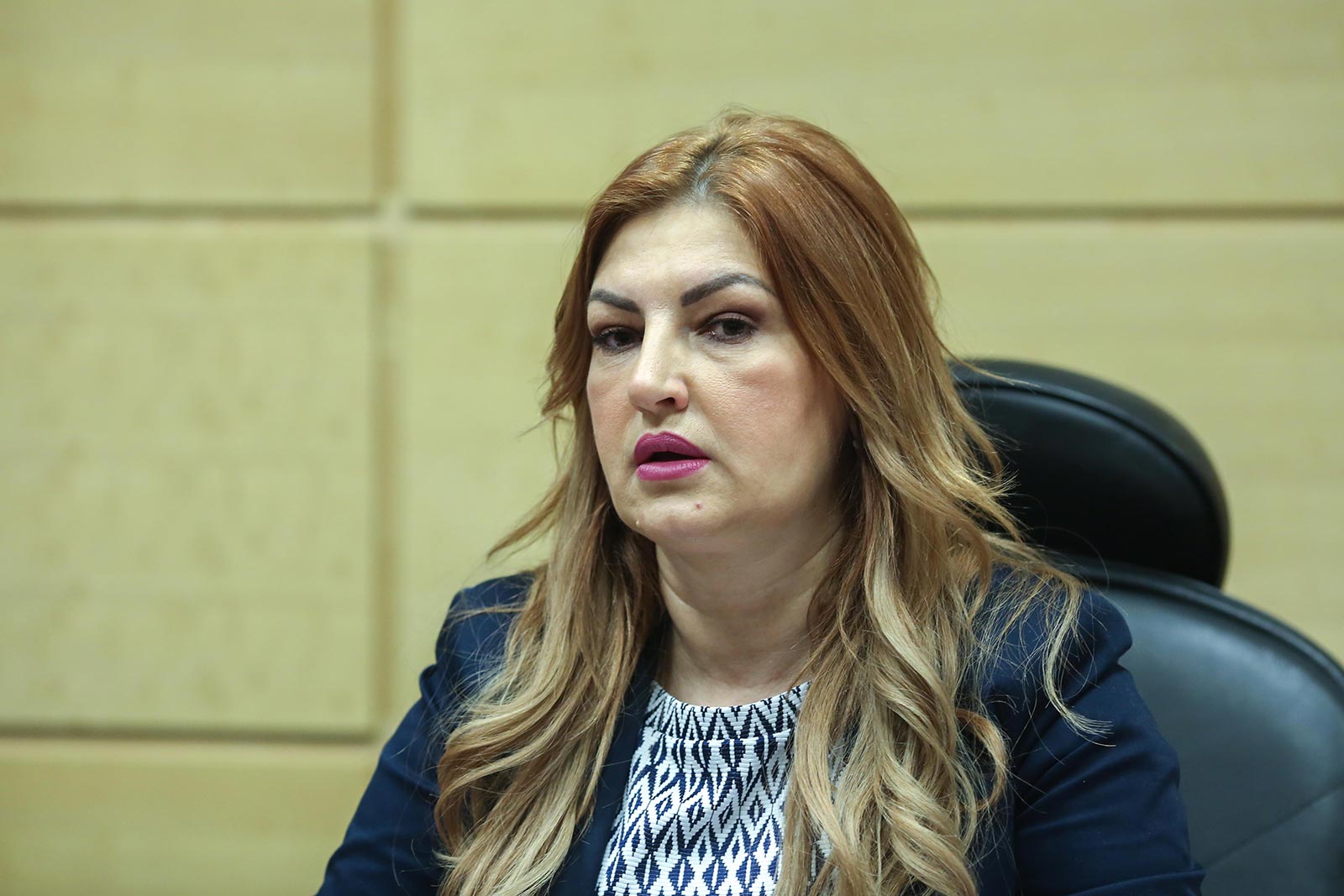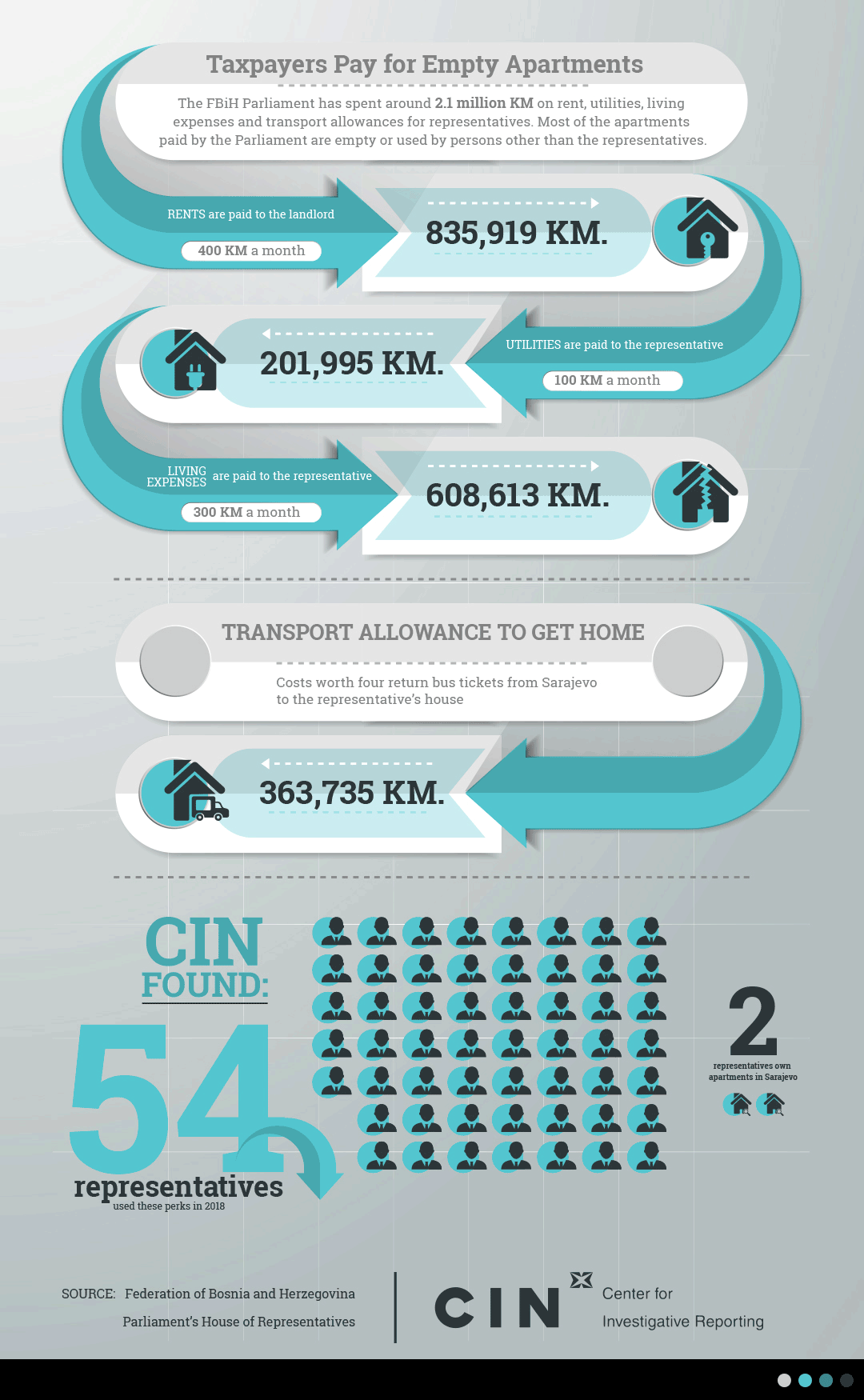The Federation of Bosnia and Herzegovina (FBiH) Parliament has been paying for accommodation in Sarajevo for Omer Škaljo from Zenica and Refik Hankić from Lukavac, even though they own apartments in the capital.
Had they reported their apartments, Parliament would not have spent money on rent. Instead, over three years and five months, taxpayers have shouldered nearly 33,000 KM in accommodation costs for these two representatives who did not need it.
According to the regulations, professional representatives who reside 70 kilometers or more from the capital are entitled to these perks. No explicit prohibition prevents collecting an accommodation allowance when you have an apartment, so Parliament does not check. It is all on representatives themselves to be frank and save public money.
Don't want to miss our stories?
Sign up for our newsletter.
Don't want to miss our stories?
Sign up for our newsletter.
In addition to Škaljo and Hankić, 50 other representatives get this perk. They get money to cover rent, utilities and living expenses — 800 KM a month. Representatives also get money to travel home every weekend, regardless whether they really take that ride.
These perks have cost the FBiH budget around 2.1 million KM over three years and five months.
While visiting the addresses of the apartments, the reporters from the Center for Investigative Reporting in Sarajevo (CIN) found that most of the representatives did not use their rented accommodation. Their children or others lived in them. And, they rented apartments from friends, cousins and acquaintances.
Last year, CIN published a story about legislators abusing these perks. But Parliament neither changed its rules, nor introduced oversight of the spending.

Representative Refik Hankić did not report that he had two apartments in Sarajevo, so the FBiH Parliament pays rent for him to a woman who like him hails from Lukavac. (Photo: CIN)
Rent along with two apartments
The FBiH Parliament pays Hankić for an accommodation in Sarajevo even though he owns two apartments in the city according to the land records. Ilderina Jusufović collects the rent for an apartment in the Sarajevo neighborhood Stup – Tibra. Both hail from Lukavac. Hankić said that he stays at her apartment when he works in the capital.
However, in the same building and on the same floor, Hankić owns an apartment he bought with his wife in 2015 after he started his term in the Parliament. Hankić tried to convince CIN reporters that the apartment was not his, but his wife’s.
In 2017, he bought another apartment in the New Otoka neighborhood. Hankić claimed that this also was not his apartment — before he ended the conversation. Reporters visited the apartments on several occasions, but found no one there.
Hankić joined the FBiH Parliament as a member of the Party for Bosnia and Herzegovina (SBiH), while in the 2018 elections he is running on Movement of Democratic Action ticket.
Škaljo also has an apartment in Sarajevo. However, this was not revealed and Parliament paid for his rent. He resides with Dragan Novaković, who told CIN reporters that Škaljo has his bed in the apartment and that he shares in the cost of utilities. He said that they were friends.

Representative Omer Škaljo has an apartment in Sarajevo, yet, every month, the FBiH Parliament on his behalf pays his friend a rent. (Photo: The FBiH Parliament)
“He sleeps here with us and uses it. And we’re not here anyway; we are pensioners, we’re more at the summer house,” said Novaković.
Last year, Škaljo sold his apartment in Sarajevo’s Grbavica neighborhood and bought a smaller unit nearby. CIN reporters came across his son Fehim in it. He said that his father comes when the parliaments convenes.
Škaljo refused to talk with CIN reporters. He joined the FBiH Parliament as a candidate of the Party of Democratic Action (SDA), while in the 2018 elections he will run on the Independent Block’s ticket.
The parliament paid 32,800 KM to rent apartments for Škaljo and Hankić. Had they reported their own apartments this money could have been saved.
This is what their colleagues, SDA members from Lukavica and Goražde, Ismet Osmanović and Mensud Borović, did at the beginning of their terms. Rules on the use of allowances do not say what kind of accommodation representatives may rent, nor do they forbid representatives who already own apartments in the capital from receiving living away from home and accommodation allowances. If a representative reports owning an apartment in Sarajevo, the Parliament won’t pay rent, but would still shell out 400 KM for living away from home and utilities, along with the transport allowances for weekend trips to home.
“It would be improper for me to use funds for accommodation, while I have my own apartment,” Borović told reporters.
Rent for family and friends
There are 98 representatives in the FBIH Parliament’s House of Representatives from all parts of the FBiH. Most of them make between 40,000 and 50,000 KM a year. That sum includes allowances for representatives living more than 70 kilometers away from Sarajevo: living expenses, utilities and paid return tickets for family visits over the weekend. Representatives are entitled to all this under the assumption that they live in the capital where their job is, and visit their hometowns over the weekend. CIN reporters’ investigation found that this is not actually the case in the FBiH Parliament; yet they regularly collect money for all allowances.
Since the beginning of this term, more than 800,000 KM has been spent on utilities and living expenses, on top of which representatives collected more than 360,000 KM for weekend trips home.
The Parliament wires rents directly to landlords.
CIN reporters visited more than 40 addresses and talked with nearly all the landlords. Yet, in the accommodations that taxpayers pay for representatives, they came across only one lawmaker.
A member of the Social-Democratic Party of BiH (SDP) from Bugojno, Mira Grgić, resides in the Ciglane neighborhood. She said that she needed the apartment because of her duties at the party and in the parliament. “To work honestly is the easiest thing,” said Grgić. “Balkan people are really creative when it comes to these kinds of abuses.”
The Parliament paid rent for Alma Arnaut, a representative of Bosnian Patriotic Party (BPS), to her family friend, until she lost that right by moving to Konjic. Arnaut was unable to precisely explain to reporters the whereabouts of an apartment in which, she said, she sometimes stayed over two and half years.
Her accommodation was paid around 10,000 KM over her term.
In the apartment the FBiH Parliament pays for to accommodate representative Mirsad Topčagić from the Party of Democratic Activity (A-SDA) in Cazin, reporters met another man who was in Sarajevo on business: “I came here to make a business deal,” said Almir Tutić adding that he got the key to the apartment from a Topčagić’s friend. “To pay nothing.”
Topčagić said that he often lets others stay in the apartment because he comes to Sarajevo only when the parliament convenes or for the commissions: “When I’m not here I simply let other people use it when they need it,” said Topčagić. “I don’t see what the big deal is.”
Blaž Župarić, Croatian Democratic Union in BiH (HDZ BiH) representative from Orašje, is unknown to the neighbors. Reporters found no one in the rented apartment, while the building’s council president, Zijad Karić, said that he rarely saw the owner and not once did he see Župarić. He said that he was not listed as a tenant: “He doesn’t live (here) for sure, nor he’s on the list. No way, I’m positive.”
Župarić said that he comes to the apartment all the time except for the weekends, though he did not know the exact address.
Župarić’s and Topčagić’s accommodation cost 31,600 KM through June 2018.
On the other hand, SDA representative from Gornji Vakuf, Dževad Agić, resides with his mother-in-law, so the accommodation allowance remains in the family. He said that the problem was in regulations that allow this. However, he admitted, he did nothing during his term to change the controversial rules.
Asked if he thought that it was fine that the Parliament gave money to his mother-in-law, Agić said: “If something is legal does not mean that it is ethical. And if something is ethical that does not mean that it is legal.” Agić’s mother-in-law collected 16,400 KM from the FBiH Parliament.
Despite numerous attempts by CIN reporters to talk with all representatives, many avoided interviews. Those who did accept would quit the conversation after just a few questions, while some ignored phone calls.
Representatives Radoslav Luburić (HDZ BiH) from Ljubuški, and Mehrudin Švago (the Alliance for Better Future — SBB) from Donji Vakuf did this.
At Luburić’s Sarajevo address reporters found another tenant who said he had lived there for at least six years and had never seen the representative. Luburić responded to a call from CIN reporters saying he was busy and to call back. After that he never picked up the phone.
The FBiH Parliament pays for Švago’s Hadžići apartment. His landlord is his friend Edin Smajić. Smajić’s father who lives in the house did not know about the tenant. “Who’s that? I don’t see him, unless he goes to the upper floor,” said Adil Smajić.
Švago claims otherwise. He said that this was an older man with whom he rarely talked. “I don’t know what the problem is,” he told the reporters. He also did not know the address of his rented apartment.
In the case of SBiH representative from Goražde, Salem Halilović, it is also not clear where he resides while he’s in Sarajevo. The Parliament pays Halilović for a part of a house that belongs to his cousin Azim Bujak in the Nedžarići neighborhood. Bujak’s wife says that Halilović resides in their other house in Buća Potok neighborhood. However, CIN reporters found his uncle Taib Bujak on this address who said that Halilović resided in Nedžarići. “The man goes there to sleep and all of that, for sure, no doubt,” said Taib Bujak.
Halilović told CIN reporters that since the beginning of his term he has been in his paid-for apartment less than five times.
For rent for Luburić, Švago and Halilović, the FBiH taxpayers have so far paid 46,800 KM.
Rented apartments in the capital also are being used by the representatives’ children. In the apartment Šemsudin Kavazović, an SBB member from Gradačac, claims, his son and daughter who study in Sarajevo, stay. He told CIN that he comes to Sarajevo three or four times a week and that those visits depend on his obligations. He sees no issue in the fact that his children live in the apartment paid by taxpayers.
“I don’t think that there’s any, how to put it, complaints about it. At least in my mind,” said Kavazović. “Now, what you media talk about it, that’s normally, your thing.”

Vesna Švancer, deputy chairwoman of the FBiH Parliament’s House of Representatives, receives money for rent, living expenses and utilities, even though she has been in jail for four months now. (Photo: CIN)
Accommodation for a Female Detainee
Rules on allowances are described in the Law on Salaries and Allowances in the FBiH bodies which was passed in 2010, and in 2011 Decision for Establishing Away-From-Home Allowances, Renting Apartments for Official Purposes, and the Costs of Accommodation enacted by the Administrative Commission of the FBiH Parliaments’ House of Representatives and House of Peoples.
Commission’s chairman Amir Zukić said a year ago that allowances were high and that the problem was with the law regulating the entitlement. He told reporters that he would see to it that the allowances were decreased, but that has not yet happened.
CIN waited months to get from the House of Representatives the records about salaries, monthly attendance fees, away-from-home and other representatives’ allowances.
Acting Secretary of the House of Representatives, Stela Ibrović, did not want to speak with CIN reporters.
Last year, CIN proved abuses of these perks in the Parliament’s House of Peoples.
It was revealed that having finished their obligations at the Parliament lawmakers drove home or slept in a hotel. They did not use their paid accommodation, letting others use them at taxpayer expense. Over two and half years, 35 legislators collected more than 825,000 KM in accommodation, living-away-from-home and transport allowances.
After the story was published, on behalf of the Sarajevo Canton Prosecutor’s Office, the FBiH Police Administration requested from the House of Peoples paperwork about legislators’ accommodation allowances. Canton prosecutors have confirmed that they’ve been working on this case.
Until the Parliament decides otherwise, deputy chairwoman at the House of Representatives, Vesna Švancer, who is an SBB member from Zenica who’s been in jail for four months, will continue to have her rent paid. Tuzla cantonal prosecutors have charged her with giving away taxpayer money to those in trouble and not-for-profit citizens’ associations. In exchange, she asked them to wire a part of the sum to her bank account.


























